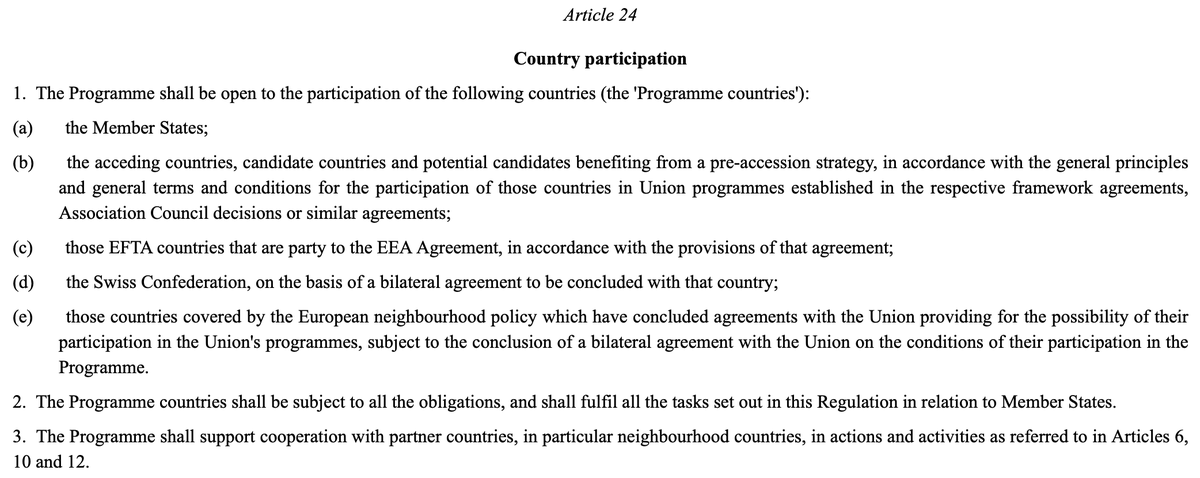
Some details about the #turingscheme as a replacement for #Erasmus are now out. Here are my initial thoughts, from an institutional and education perspective more than costs. /1
https://twitter.com/jim_dickinson/status/1342850650309353474
First, setting up a scheme to run in 2021 is difficult and especially for those already in degree programmes who were due to go on Erasmus placements (language students in particular). Setting up non-Erasmus agreements with Universities takes many months of bureaucracy. /2
I know because I've done this: whilst some Unis can move quickly, getting an agreement from a Uni in, say, the USA is tricky. Why? Needs to be interest from other side to receive *and send* students, which there may or may not be. Bespoke contract, Uni committees etc. /3
Second, Erasmus and non-EU links work on the basis of an exchange, and usually reciprocity in numbers. The UK might be an attractive destination, but also a costly one and the visa rules for students are off-putting. /4
Third, it seems Turing will *not* cover incoming students, so there is little financial incentive. This differs from the Swiss experience when they left Erasmus and set up their (more expensive) replicated scheme, though it allowed exchanges to continue. /5
Fourth, if existing Erasmus relationships in Europe are to be 'converted' to Turing ones, there is less incentive for EU unis to continue unless their students going to the UK can self-fund or get money from the govt (unlikely?). /6
Fifth, getting agreements with non-EU unis is complex. Credit transfers, agreeing on what help to give re accommodation/welfare, availability of English-language classes, semester dates (an issue for Aus/NZ) for both sides and costs. /7
Sixth, Uni staff like myself are very conscious that we are sending (mostly) young people aged 19-21 for very often their first lengthy stay abroad. There is a duty of care to ensure that there is adequate support and any issues (e.g. lack of student housing) are foreseen. /8
Seventh, costs. Erasmus and other exchanges are usually on a no-fee basis, i.e. fees are waived by the Unis to visitors. This does have financial consequences for Unis, esp when there is an imbalance in numbers. Getting such agreements through Uni admin can be fun (!). /9
In short, exchanges sound easy but can actually be tricky and short lived, leading to a lack of certainly (especially when marketing opportunities to A-level/Highers students). Erasmus was guaranteed for all participating students, not clear if Turing funding will be. /10
The above points speak mainly to the need to have agreements between Uni X in the UK and Uni Y overseas. Is a prior agreement always need, or could a student just say 'X uni are willing to take me for a year, can I get funding'? These are called 'free movers'. /11
Sometimes this is possible BUT difficult to see why a Uni would take someone without paying a fee. I cannot imagine the £100 million allocated would also include paying fees to the overseas Uni - if so, the budget is far too small. /12
Which means the risk is that the funding will only go to students able to self-finance to a great degree, and not to all students including those less well off - as Erasmus has done. /13
The amount of Uni bureaucracy created is enormous, and requires a lot from academic as well as administrative staff. At the same time as existing pressures. /14
Finally (lost track of the numbered points), *where* are students from Global Britain going to go? Here are some observations about *my experience* (for others it may vary) in setting up these kinds of arrangements, which do not apply very much in Europe/Erasmus: /15
USA - quite tough to get agreements due to the sensitivity around costs and resistance to fee waivers. US students often prefer summer courses they can use for credit, rather than a semester/year abroad if they still have to pay fees at home. /16
Canada - a popular choice for UK students but a limited number of Unis to partner with, and Canadians often prefer non-English speaking destinations. /17
Singapore/Hong Kong - these are great for UK students to experience Asia and the British Council has sometimes funded exchange scholarships. But few Unis in both due to size and no guarantee that UK is the prime destination for their students to go on exchange. /18
Japan/Korea/China - (disclosure: I went to Japan as a graduate exchange student). Clearly where the govt wants more UK students to go *but* unless already proficient in the national language, then very difficult due to lack of English-language provision. /19
Latin America - possible for those who speak Spanish or Portuguese, though costs much higher than Spain. Limited English language teaching except for private Unis (refer to costs point above - would the Turing scheme cover tuition fees? Likely not). /20
India - I would like nothing more than to exchange students with Indian Unis and worked hard to establish links. Main issue was the costs for Indian students to come to the UK and the punitive costs and conditions for getting student visas. /21
There are just a few thoughts on the difficulties associated with setting up #turingscheme with such little notice. Erasmus is 30 years old and took many years to establish itself, but brought down transaction costs and ensuring that Unis were able to work more closely. /23
My fear is that the scheme will either not work, or that its limitations mean that Universities will struggle to institutionalise the means for students to participate. And the losers will be students (present and future), UK HE and UK 'soft power' /END
Thank you for all the RTs and replies. My research article of the academic benefits of study abroad (Erasmus and beyond) is here: researchgate.net/publication/33…
• • •
Missing some Tweet in this thread? You can try to
force a refresh



